Are you looking to make a meaningful impact in your community through corporate charity partnerships? Collaborating with charitable organizations not only enhances your company's social responsibility profile but also fosters a sense of unity among employees and clients. By aligning your corporate values with a cause, you create opportunities for positive change and brand loyalty. Ready to explore how your business can partner with a charity for a greater good? Keep reading to discover actionable steps and inspiring success stories!

Clear Partnership Purpose
Corporate charity partnerships can enhance brand image while making a meaningful impact in communities. Establishing a clear partnership purpose is crucial for aligning corporate goals with charitable missions. For example, a tech company's partnership with a local education nonprofit could focus on improving computer literacy among underprivileged youth. This collaboration may involve workshops, donation drives for used devices, or funding scholarships. By defining measurable objectives, such as increasing the number of students served by 25% within a year, both parties can track progress and demonstrate tangible outcomes. A well-defined purpose not only fosters accountability but also generates more substantial engagement from employees and stakeholders.
Mutual Benefits Outline
Corporate charity partnerships can yield mutual benefits, enhancing corporate social responsibility (CSR) while driving community impact. Engaging with charitable organizations can improve brand reputation, particularly for companies like multinational corporations that operate in diverse markets. By aligning with non-profits focused on key issues, such as environmental sustainability or social equity, businesses can tap into increased customer loyalty, evidenced by a 70% preference for socially responsible companies among consumers. Volunteering programs, where employees participate in community service events, not only foster team building but can also lead to gains in employee satisfaction and retention rates, positively influencing workplace culture. Furthermore, these collaborations can provide charitable organizations with essential funding and resources, empowering them to amplify their missions and address pressing social issues, thus creating a compelling narrative that appeals to stakeholders across the board.
Specific Contribution Details
Corporate charity partnerships enhance community engagement and social responsibility. Financial contributions, such as donations exceeding $50,000 annually, enable nonprofits to execute crucial programs effectively. In-kind contributions, like technology support valued at $20,000, improve operational efficiency in charitable organizations. Event sponsorships, such as a gala fundraising event in New York City raising $200,000, create awareness and drive community participation. Employee volunteerism, with teams dedicating over 1,000 hours to local service projects annually, strengthens relationships between corporations and communities. Strategic partnerships can also include matching gift programs, doubling employee contributions to maximize support for causes like education or health.
Branding and Visibility Opportunities
Corporate charity partnerships provide numerous branding and visibility opportunities for businesses. Through collaboration with non-profit organizations, companies can increase their brand awareness (a metric that measures the prominence of a brand) in various communities. Engaging in high-profile events, such as charity runs (often drawing thousands of participants), helps enhance a company's reputation while showcasing their commitment to social responsibility. Utilizing platforms like social media channels (including Facebook, Twitter, and Instagram) for promoting these initiatives amplifies reach, attracting customers who prioritize corporate social responsibility. Joint marketing efforts can yield significant returns by aligning the brand with causes that resonate with consumers, thereby fostering trust and loyalty. Moreover, recognition in press releases, newsletters, and community events (e.g., local fairs) further embeds the brand in the public consciousness.
Contact and Follow-up Information
Corporate charity partnerships often require strategic communication and follow-up. Effective contact information includes the email address, telephone number, and physical address of the charity organization, such as [Charity Name], located in [City, State]. Follow-up intervals should be clearly defined, typically occurring within 1-2 weeks after initial outreach, to maintain engagement. It's essential to track previous interactions, documenting key details such as discussion points, proposed collaborations, and potential impact metrics. Additionally, using tools like CRM software can streamline the management of partner relationships and optimize communication efforts. Regular updates on project progress and outcome measurements are crucial for sustaining interest and accountability in these partnerships.
Letter Template For Corporate Charity Partnerships Samples
Letter template of Corporate Partnership Proposal for Charity Collaboration
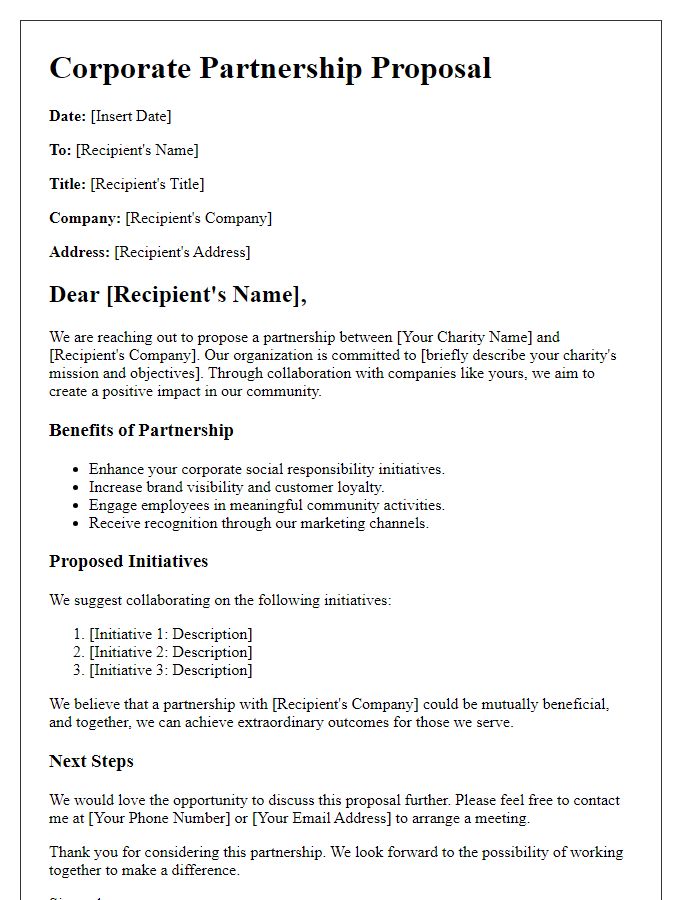
Letter template of Collaboration Invitation for Social Responsibility Project
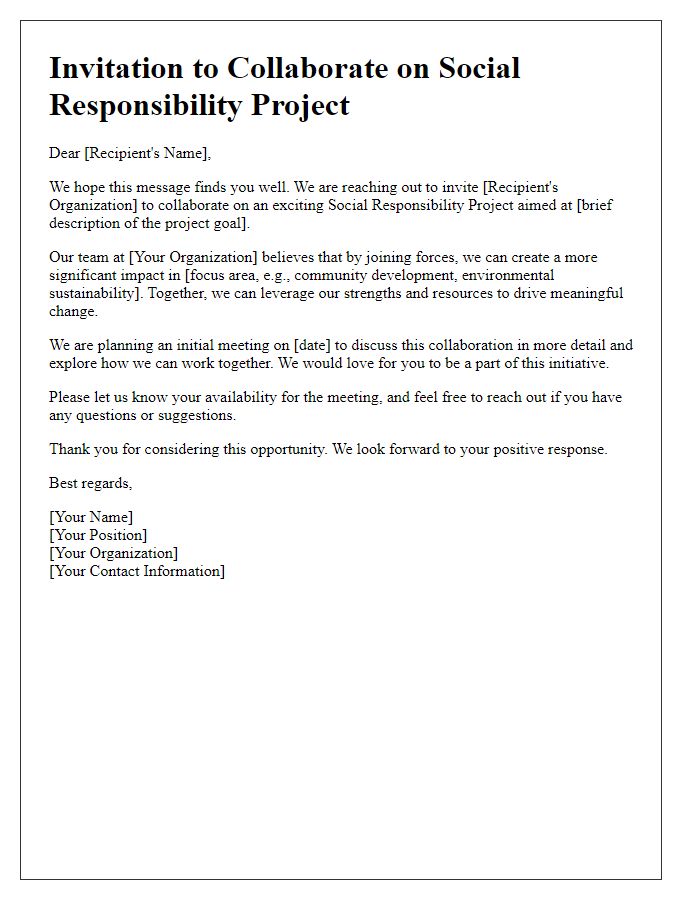
Letter template of Proposal for Joint Charity Event with Corporate Sponsors
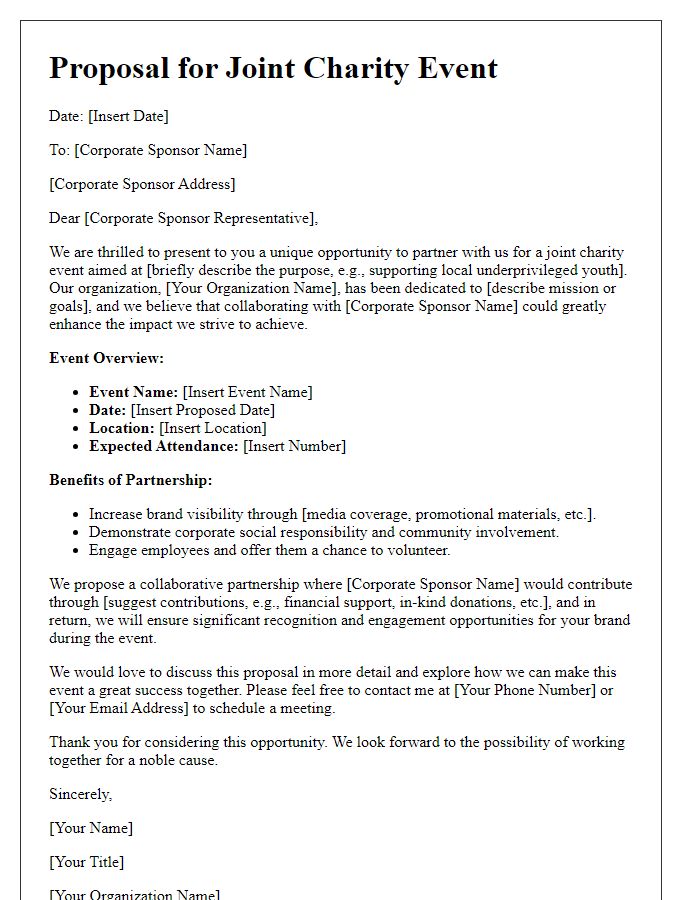

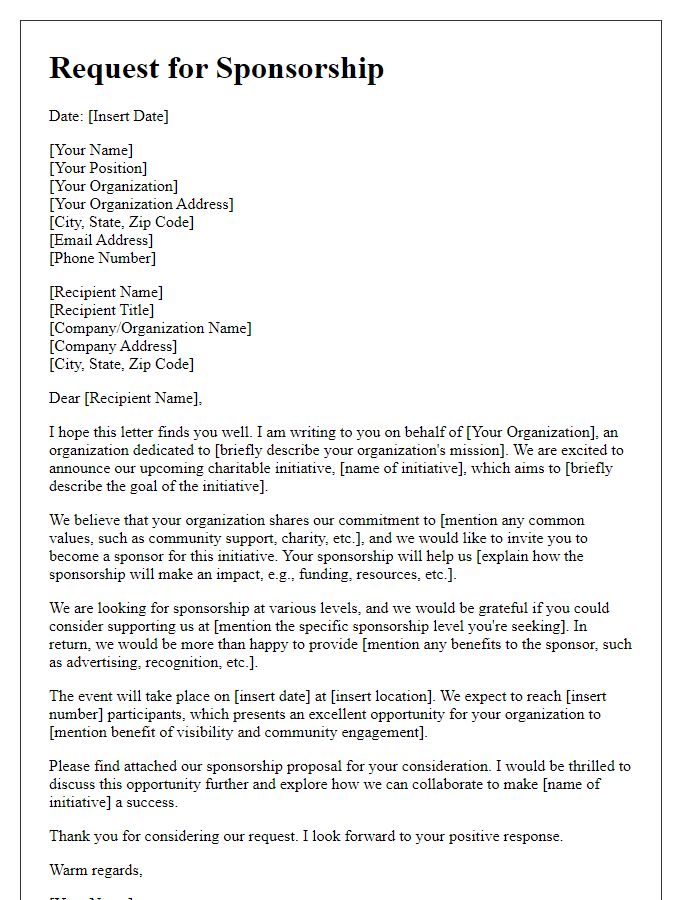
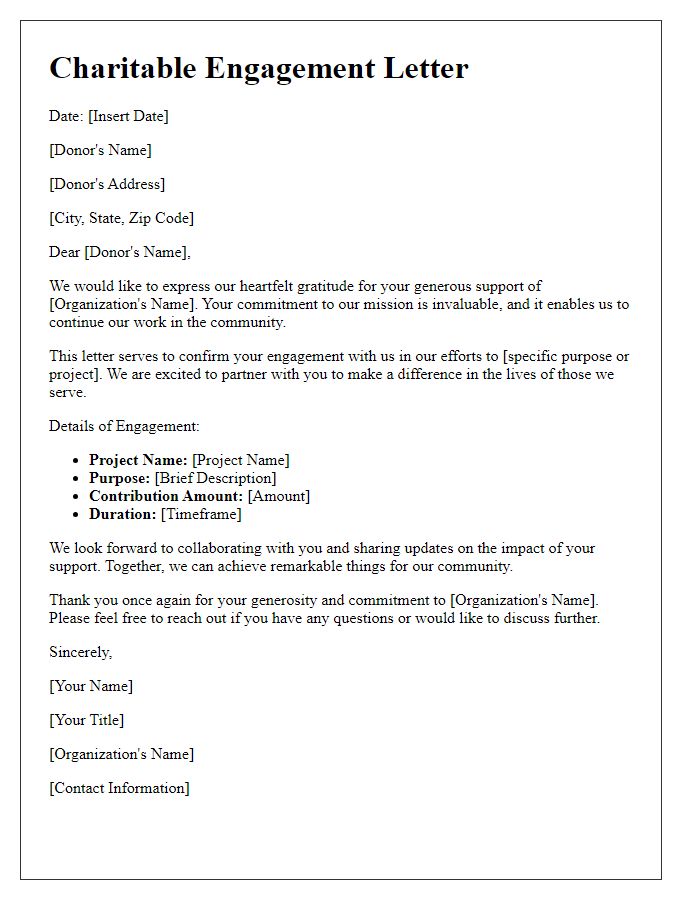
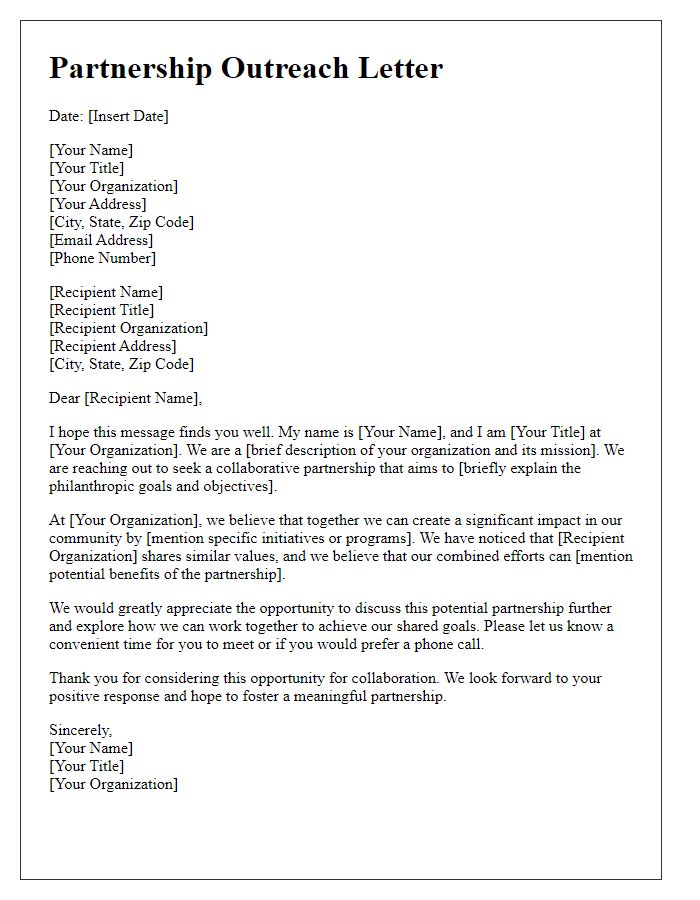
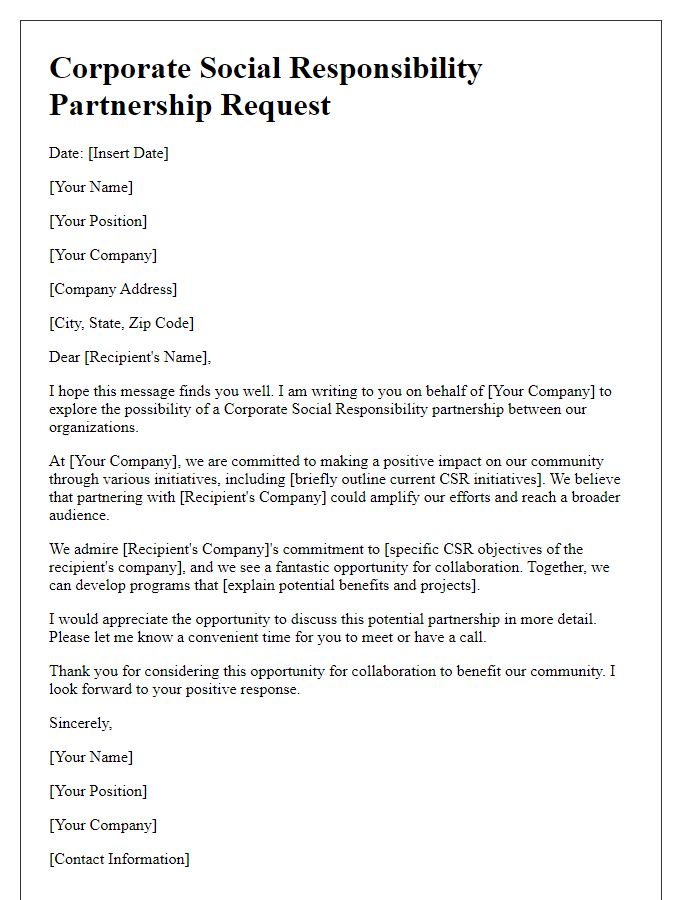
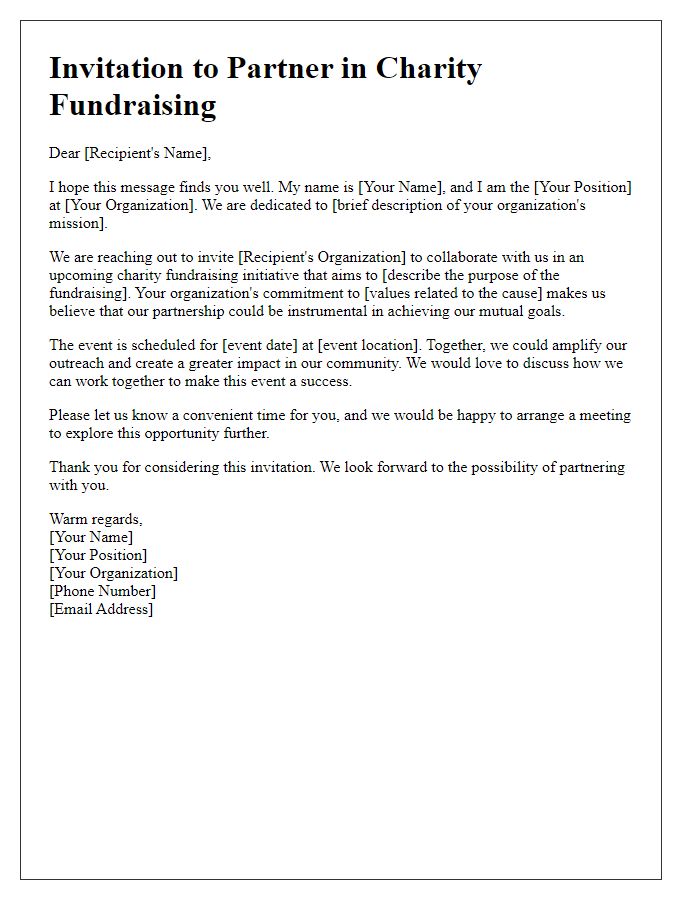
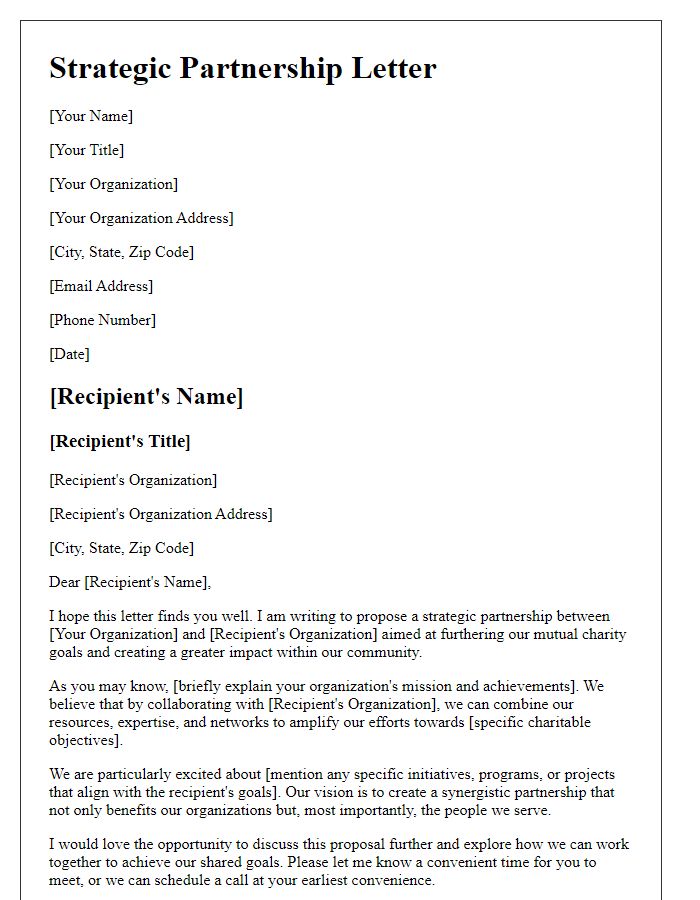
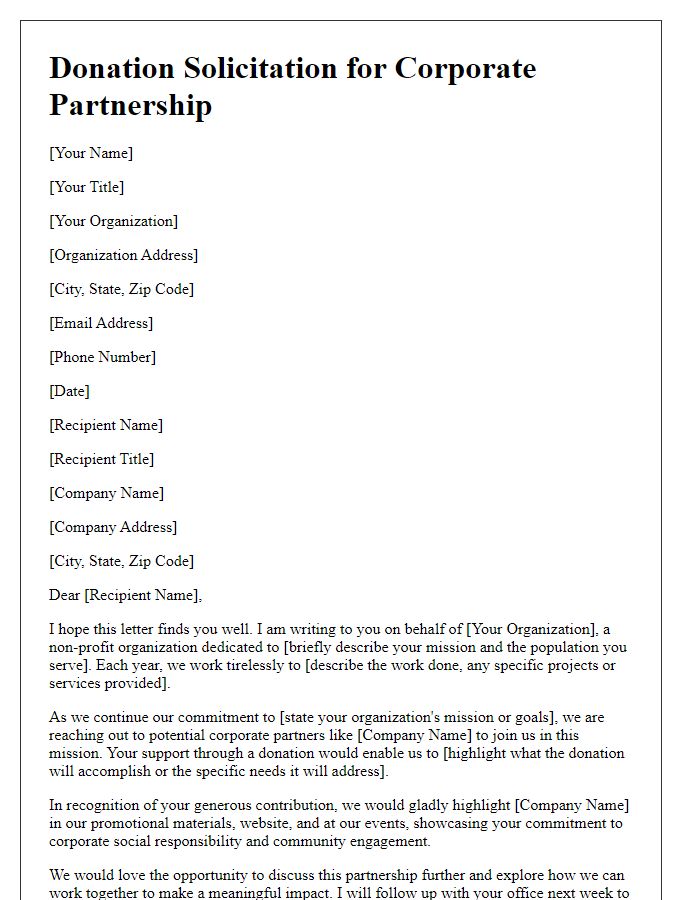


Comments